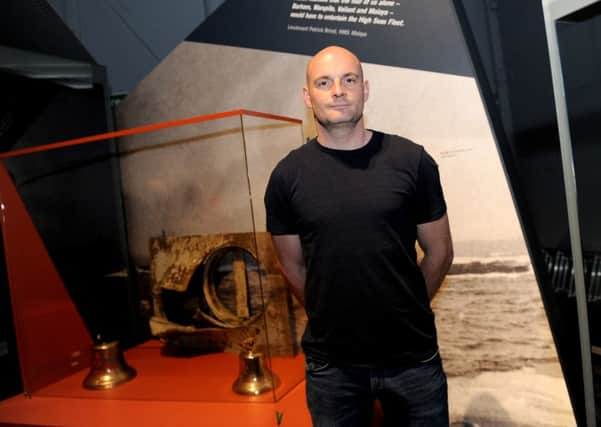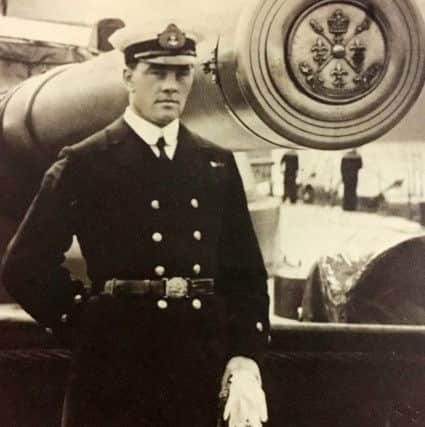Sailor who died at Jutland saved Churchill in attack


Ernest John Read, 36, died alongside more than 1,000 others when the battlecruiser HMS Invincible was sunk after being blasted by enemy shells in the First World War.
But almost 17 years earlier the heroic young sailor had protected Britain’s future Second World War prime minister from a deadly assault during the second Boer War, his grandson has revealed.
Advertisement
Hide AdAdvertisement
Hide AdErnest, of Chichester Road, North End, was guarding an armoured steam train transporting the 26-year-old war correspondent Churchill when it was raided in November 1899, in South Africa.


It had been travelling between Frere and Chieveley when it crashed into a boulder placed on the track by Boer kommando forces.
The ambushing Boers launched a vicious attack, riddling the train with bullets, while Ernest and his colleagues returned fire until, desperately trying to protect those on board.
Although Churchill was captured after the 70-minute fire-fight – and later escaped a prison camp in Pretoria– Ernest’s actions saw him being awarded the Conspicuous Gallantry Medal for his bravery.
Advertisement
Hide AdAdvertisement
Hide AdNow, his story is just one of many to be featured at the 36 Hours: Jutland 1916, The Battle That Won the War, in Portsmouth’s National Museum of the Royal Navy in the run-up to the pivotal conflict’s centenary.


His grandson Toby Read, 37, lives in Milton and had no idea of his relative’s courageous past until he approached the museum.
‘I didn’t know a great deal about him because he died when my dad was only 18 months old,’ he said.
‘But the more I found out about him the more amazed I became. He was a naval gunner during in the Boer War and I read that while under constant sustained attack they carried on firing their guns.’
Advertisement
Hide AdAdvertisement
Hide AdThe Battle of Jutland was the First World War’s biggest naval battle.
Played out in the icy seas off the Danish coast, more than 100,000 British and German sailors squared off against each other in one of the most cataclysmic naval fights in history.
A staggering 151 British warships went head to head against 99 German ships in the 36-hour fight.
All hell broke loose at 6pm on May 31, 1916. Only one British ship from the conflict survives to this day – HMS Caroline.
Advertisement
Hide AdAdvertisement
Hide AdNaval veteran Ernest was aboard the doomed HMS Invincible, the flagship of the 3rd Battle Cruiser Squadron.
Invincible was blown in half and sank in just 90 seconds, killing all but six of its 1,000-strong crew.
Firefighter Toby added: ‘This makes me very proud to know what he did. Although I’ve never met him and he died 70 years before I was born it still makes me feel very proud.
‘It’s important to remember all those killed. I have an eight-year-old daughter and I want her to understand the sacrifice that they made because it was down to their actions that we’re living in the world we live now.’
Advertisement
Hide AdAdvertisement
Hide AdDirector general of the NMRN, Professor Dominic Tweddle said: ‘In a year of commemoration it is imperative that the Royal Navy’s greatest battle, the Battle of Jutland, is remembered with the same importance as the Battle of the Somme, and alongside other anniversaries including Shakespeare 400 and the Battle of Hastings.
‘Jutland’s significance in turning the tide of the First World War must not be underestimated. We are proud to be able to tell its story.’